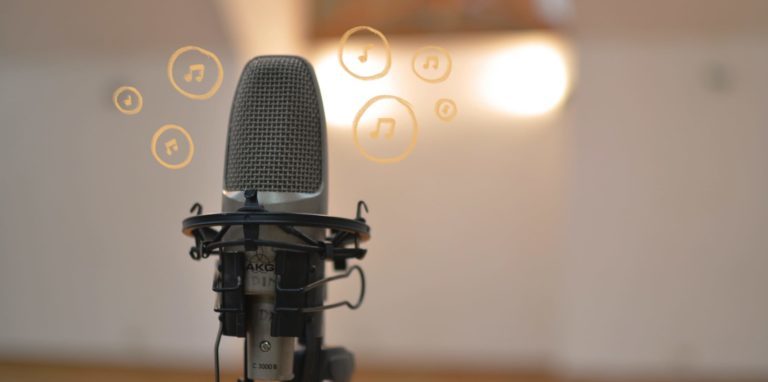If you’re looking to increase the size of your network, position yourself as an authority in your industry, or find new ways to effectively promote your products or services, then you should try starting a podcast.
Not only is it a great format to share your expertise in your industry, but it’s also an effective way of building a solid connection with your audience and creating trust in the process.
Plus, not everyone has the time to read a long blog post. So, having a podcast allows you to cater to a wider audience.
If you’re concerned that starting a podcast is a complicated process, it’s actually not. Doing some proper planning before you launch is the key to having a show with a massive audience and the best chances of being successful. Here’s everything you need to know to get started with podcasting for business:
A step-by-step guide to starting a podcast
- You need to define your audience.
What will your show be about? Who can benefit from your program and who will likely be interested in listening to what you have to offer?
- Decide on a theme or topic you want to focus on.
- What topic or niche do you want your podcast to focus on? Choose something that’s directly related to your business. For example, if you offer yoga classes, you should talk about health and wellness.
- Once you’ve chosen a topic, it’s time to think about the subtopics you want to talk about in every segment.
For example, your main topic is about health and wellness. Some subtopic ideas are meditation and positive thinking, breathing exercises, diet control, etc.
- To make your show more engaging, it’s good to have a variety of segments. For example, you can have Q&A Fridays, Invite a guest on one of your episodes, and many more.
- Choose a podcast name.
Choose a name that gives people an idea of what your podcast is all about and entices them to listen.
- Choose a show format.
- What kind of hosting style do you think will work best for your program? Conversational? Just you and the mic? Or an interview style?
- How long should your podcast be? Find out what works best for you and your audience.
- How should each episode look? (Intro music, welcome, ad spot, interview, call to action, outro music).
Related: Profitable Podcasting: Build Your Nation of True Fans
- Buy the right equipment.
Once you’ve decided what your show is going to be all about and the type of podcast format you want your program to be, it’s time to buy the right equipment.
Some of the essentials are:
- Computer
- Microphone and stand
- Headphone
- Pop filter
- Shock mount
- Headphone amplifier
- Audio interface
- Mixer
- Podcast recording software
Sound quality is everything when it comes to podcasts.
StartupNation exclusive discounts and savings on Dell products and accessories: Learn more here
- Work on your intros and outros.
Your intro can make or break your show. The right intro can make a good impression and keep your audience listening for more.
A good outro can help build your brand identity and keep your audience thinking about your podcast even long after it’s over.
For your intro, being clear on your topic is great, but making your listener relate to it will really pull them in. Present a problem and a solution. Familiarity is also important. You want your listeners to believe they are part of the story.
An outro works best when it rounds up the information that’s been presented then asks the listener to consider a call to action. It’s also an optimal time to let your fans know how to contact you.
- You’ll need to leverage your network.
Do you know any celebrity, industry leader, influencer, etc. who you think your audience will be interested in listening to? You’ll most likely need their help to get the attention of your ideal audience and to publicize your podcast.
- Track your downloads.
You must know your metrics and keep an eye on them. The only way to know what works and what doesn’t for your audience is to experiment and monitor your KPIs.
Conclusion
Starting a podcast doesn’t have to be complicated as long as you have a concrete plan in place and make sure to follow it. Being prepared can mean the difference between having a show with no audience and a show with super-engaged fans clamoring for the next episode.
Use these tips to kickstart your podcast to success!





